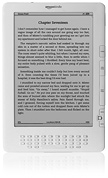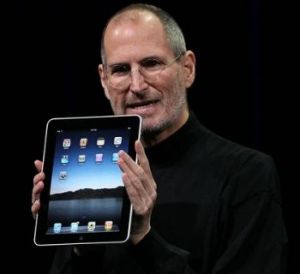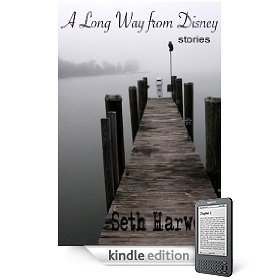Caveat: before half of you get your shorts in a bunch, tomorrow’s post will be: Top 10 Reasons Why iPad Means Kindle Is Dead. With that said, have at it!
10.) Taking reading from a simple printed page to an e‑book environment such as the Kindle is a great step forward. Its ease of use, portability and storage are ideal for readers. No more innovations needed!
9.) The enjoyment of reading has always taken place within a reader’s mind. This is both why reading is great and why the words on the page don’t need to be in flashy colors or feature fancy graphics.
8.) Added cost of iPad and $30/month fee for 3G from AT&T (the realistic cost) make Kindle a better deal. Enough said.
7.) Everyone hates AT&T, their 3G service is spotty at best, and NO ONE who’s buying a 3G iPad will use less than 250MB a month, so the $14.95 price point for 3G is useless!
6.) Glare/e‑ink. You can always read during the daytime with your Kindle. Take it to the beach, read in broad daylight. e‑ink is simply easier on readers’ eyes than back-lit pixels.
5.) There’s no need for a device that fits between laptop and smart phone. Both are extremely portable and serve different purposes. If I want to curl up in bed with a movie or the web, I can use my laptop for that already. If I want to curl up in bed and read, I can use my Kindle!
4.) Apps! That’s right: The new opening up of Amazon’s Kindle format to app developers will mean a lot more versatility on the device. Once a few folks come along and develop email clients or web browsers for the Kindle, Kindle will become even more useful as a potential smart phone substitute—the niche that iPad seems intent on filling.
3.) The new price-sharing announcement (70% publisher/30% Amazon) for Amazon’s Digital Text Platform (DTP) makes Kindle more attractive once again to all the powers that be in publishing. If they can get this pesky text-to-speech battle cleared up, things will be even better.
2.) Big publishing is currently doing so much of their sales through Amazon, that they might be afraid to carry business over to Apple. Sure, they will sell books there, but keep in mind that Apple might have to keep prices in the iBook store higher than at Amazon.
1.) “I love my Kindle!” –Seriously, a lot of readers are devoted to these devices, including me. I’ve found a nice cover that makes the Kindle easy to hold. I really like the ease of buying/storing books on it. And I just want a plain, simple device to use for reading.
The opinions expressed above are not necessarily those of Open Culture or the author.
Up next (tomorrow): Top 10 Reasons Why iPad Means Kindle is Dead
Seth Harwood is a voracious reader, subversive publishing maven and crime novelist. His next book Young Junius will be available from Tyrus Books this fall. He’s sure to have some crazy promotions going at his site this spring as well.




